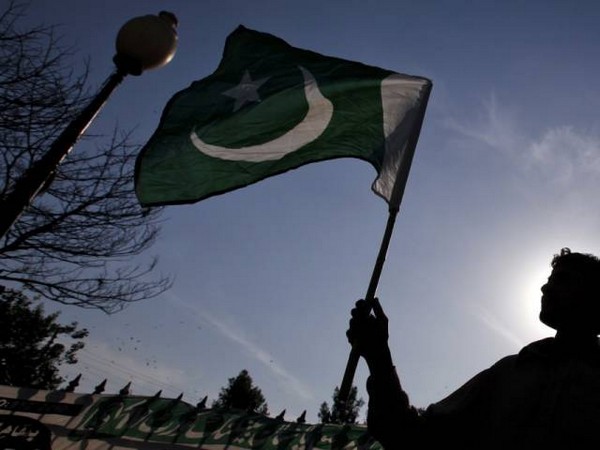Pakistan Army-Imran Khan tussle continues
Pakistan Tehreek-i-Insaf (PTI) chairman and former Prime Minister Imran Khan, who was ousted from the power last month, has blamed the Army establishment, primarily the Chief of Army Staff Gen Qamar Javed Bajwa, for playing an important role in his government's ousting from power.

- Country:
- Pakistan
Pakistan Tehreek-i-Insaf (PTI) chairman and former Prime Minister Imran Khan, who was ousted from the power last month, has blamed the Army establishment, primarily the Chief of Army Staff Gen Qamar Javed Bajwa, for playing an important role in his government's ousting from power. In his recent public speeches and social media interactions, Imran Khan put allegations against the Army of ousting him from power. Even in a podcast, Imran Khan claimed that he became aware of the opposition's 'conspiracy' to overthrow the PTI-led government in July, last year.
Former Prime Minister said that these are the reasons that he did not want to change the former director-general of the Inter-Services Intelligence (ISI) Lieutenant General Faiz Hameed till the winter was over. He further said that after the Taliban took over Afghanistan in August last year, there were threats of civil war in Kabul and this is the reason he wanted to continue with the then ISI chief during "difficult times." These revelations made it clear that the Pakistan Army's top leaders were not united while deciding the fate of the PTI government and there is a possibility that they were divided into two camps, in which one was in favour of Imran Khan, including Lt Gen Faiz Hameed and others are the one who was against Imran Khan like Army Chief. Despite Khan's disapproval, the new ISI Chief was announced as per the Army Chief's order in October, last year, Al Arabiya Post reported.
Moreover, Gen Bajwa stayed "neutral" during the 'no-confidence' motion episode last month and quietly allowed the opposition alliance to oust the PTI government "constitutionally." This 'neutral' was criticised by Imran Khan and his party, although the PTI government came to power in 2018 with the army's help. Even the Ameer of Jamaat-e-Islami (JI) Pakistan, Sirajul Haq confirmed that the military establishment felt "embarrassed after the failure of the PTI project and it again brought back the former ruling parties into power." To maintain their domestic and international image, the Army establishment choose a long-drawn political option which was a no-trust vote to overthrow the PTI-led 'hybrid regime' from power. Perhaps, the army was also aware of Imran Khan's popularity as a civilian leader and did not want to get involved openly in the process of removing him from power and maybe this is the reason that they chose to remain 'neutral' during the no-confidence motion.
Now, after a month of Khan's removal, there are growing chances of street violence and clashes between the supporters of PTI and the Shehbaz Sharif-led opposition alliance. Imran Khan to pave his way back to the power is regularly attending public rallies and giving mainstream and social media interviews to garner public support to pressure the Shehbaz Sharif-led government for early National Assembly elections in Pakistan. So far, there are no signs of fresh polls in Pakistan.
Meanwhile, Imran Khan has announced a 'long march' to Islamabad in the month of May against the ruling coalition and issued a fresh calendar of public rallies in different parts of the country to mobilize the crowd for the big rally. This may lead to chaos on the streets of Islamabad, jeopardising the law-and-order situation of Pakistan's capital, and forcing the military establishment to intervene. At a public rally in Abbottabad on May 8, Imran Khan said "only animals were neutral," this remark indirectly was aimed at the military leadership of Pakistan. As soon as these remarks came, the Inter-Services Public Relations issued a statement and said that the Pakistani Army condemn the spread of "unsubstantiated, defamatory, and provocative statements and remarks" against them and termed the practice "extremely damaging."
Prime Minister Sharif has also decided to take legal action against Imran Khan for his "anti-state" speech. It is an opportune moment for Sharif to impress the military establishment and seek their support to handle the ongoing political crisis. Several analysts from Pakistan have claimed that this is the first time in Pakistan's history when a civilian leader is targeting the country's powerful military establishment and even forcing it to pick sides. In this fight, even the PTI supporters also came out and start using the social media to target the army, especially Gen Bajwa, for doing nothing to save Imran Khan's government, whereas, other PTI leaders are regularly tagging ISPR in their propaganda tweets against the ruling government and questioning the army's neutrality.
Lastly, Imran Khan may not shy away from targeting the military establishment for the ongoing political crisis, in a possible (failed) attempt to prove his political worth to Rawalpindi. (ANI)
(This story has not been edited by Devdiscourse staff and is auto-generated from a syndicated feed.)
ALSO READ
World Bank, ARTF support financing for micro and small enterprises in Afghanistan
Rajnath Singh releases Indian Army UN Journal -2024 theme of ‘Resilience and Adaptability’
Army starts induction of control, reporting systems under 'Project Akashteer': Sources
CAA, related rules brought to safeguard rights of minorities from Pak, Afghanistan & B'desh, says fresh plea
Myanmar resistance group says its drones hit targets in the capital, but army says it shot them down










